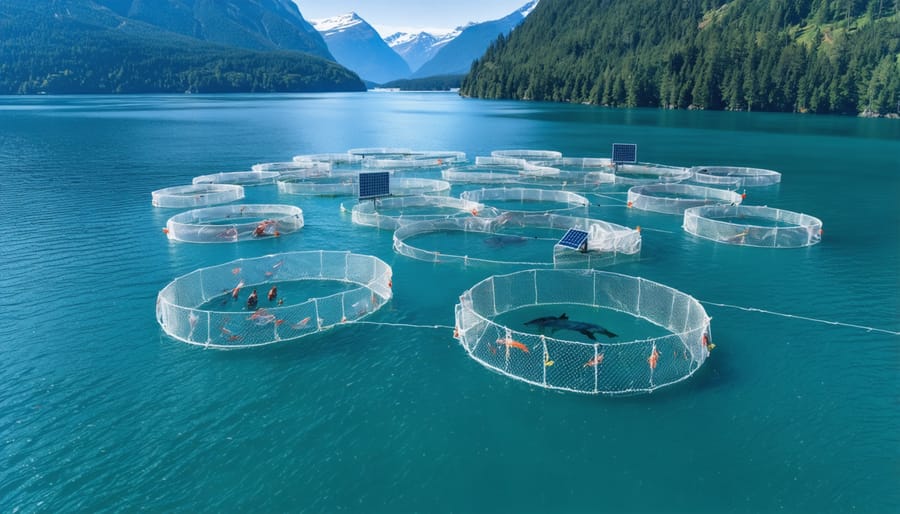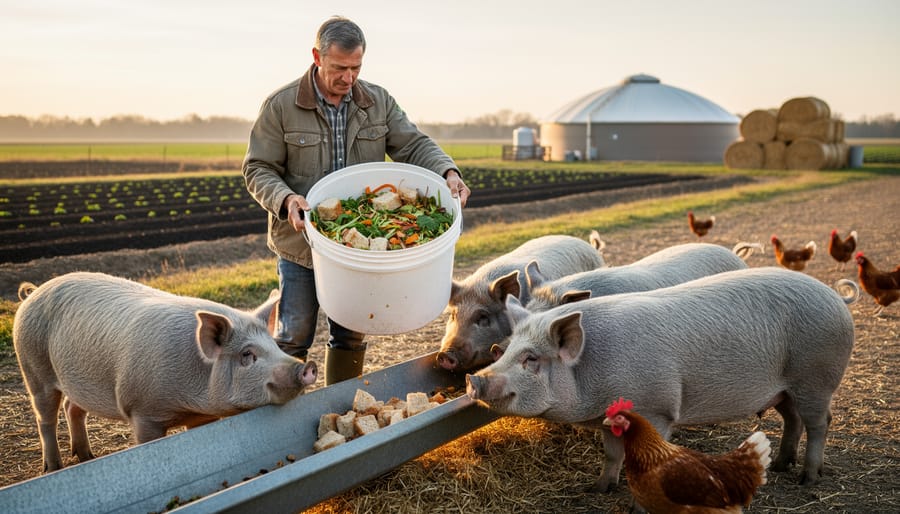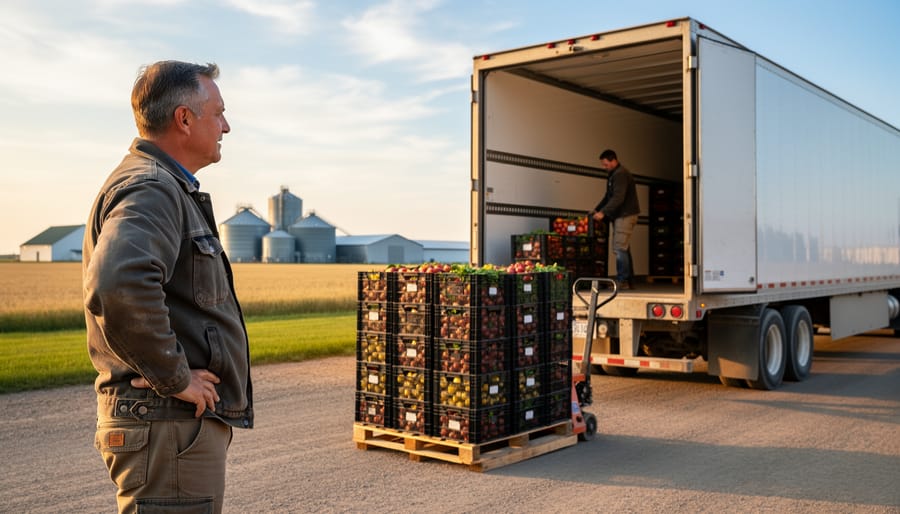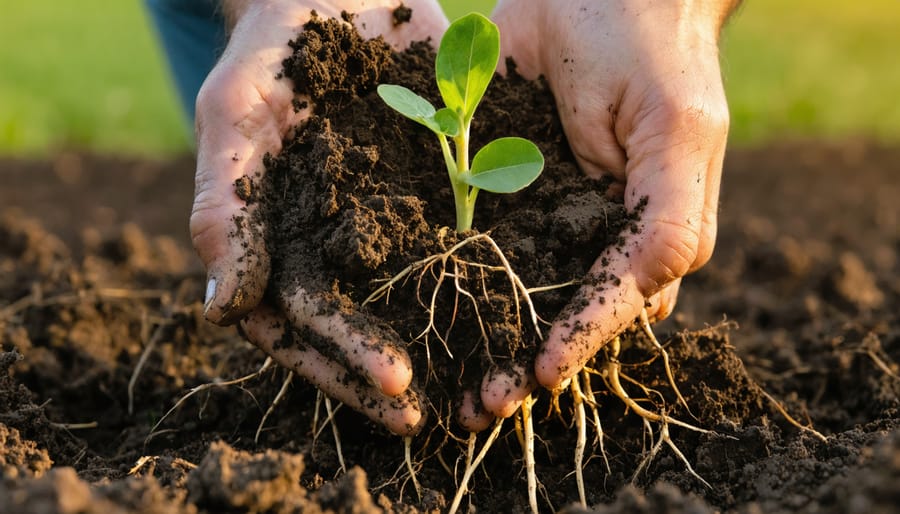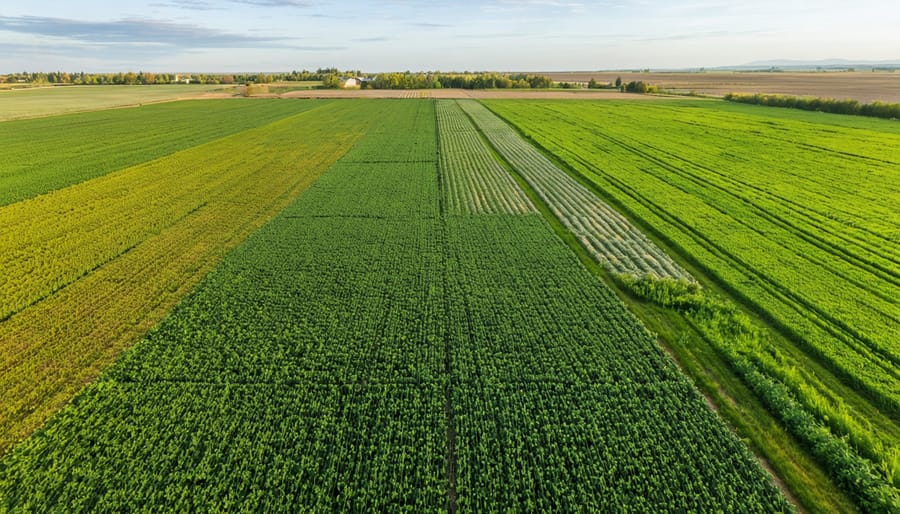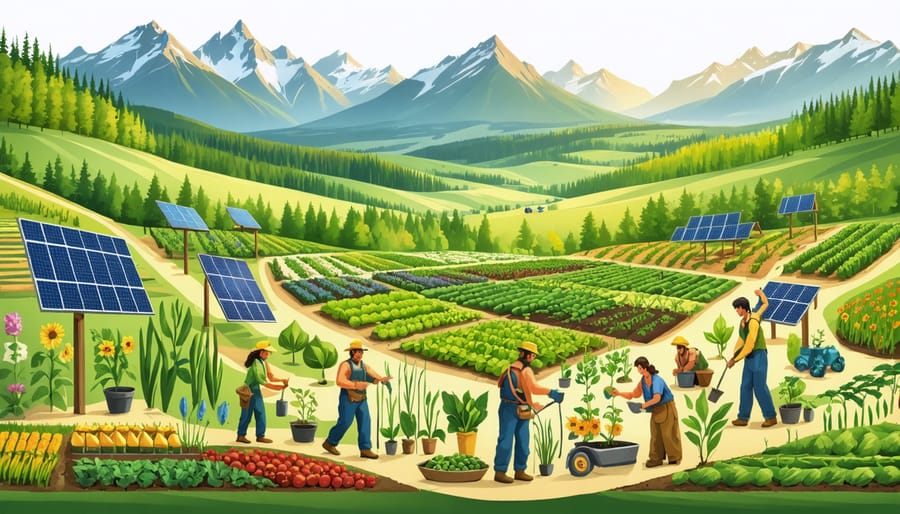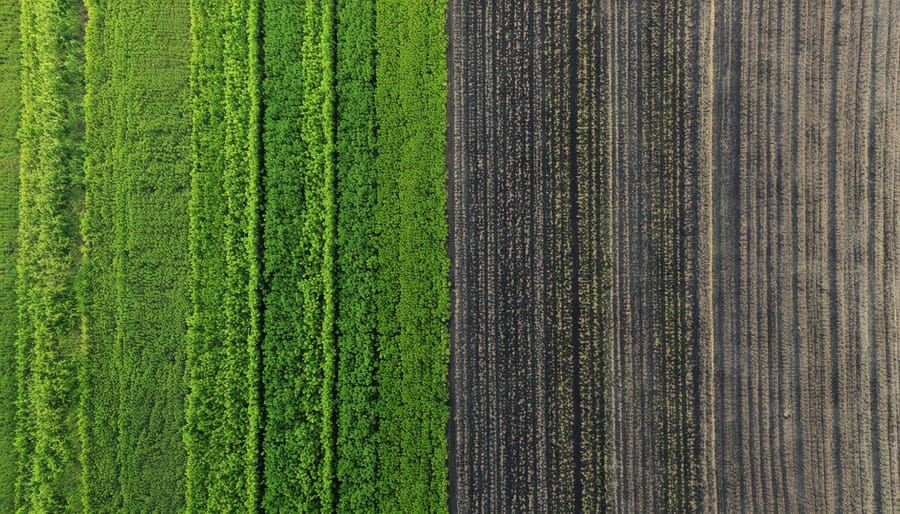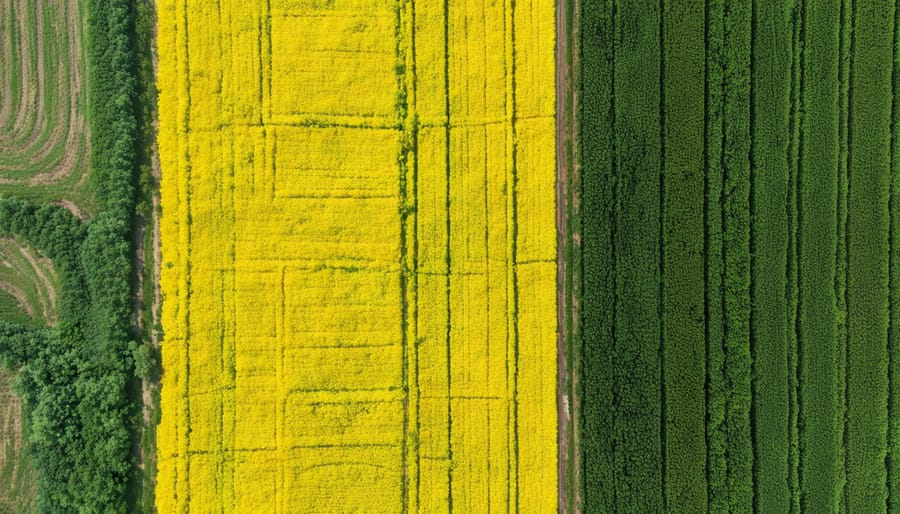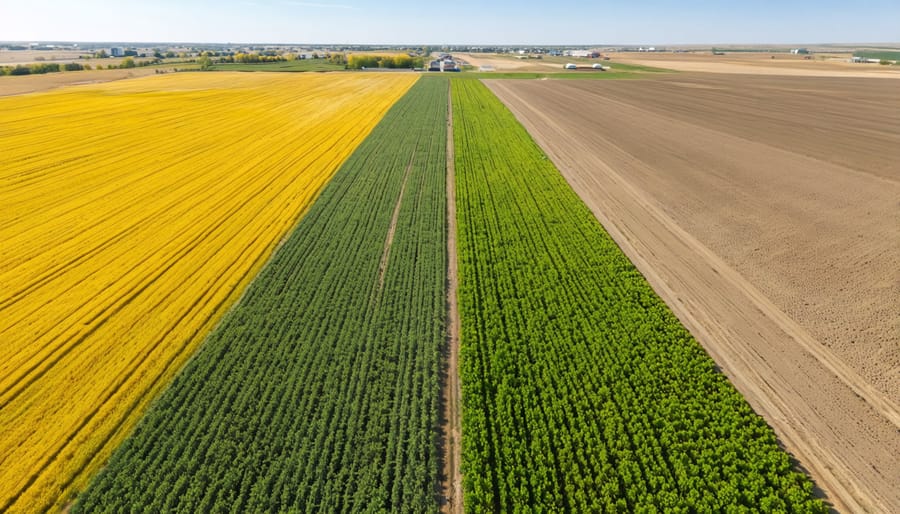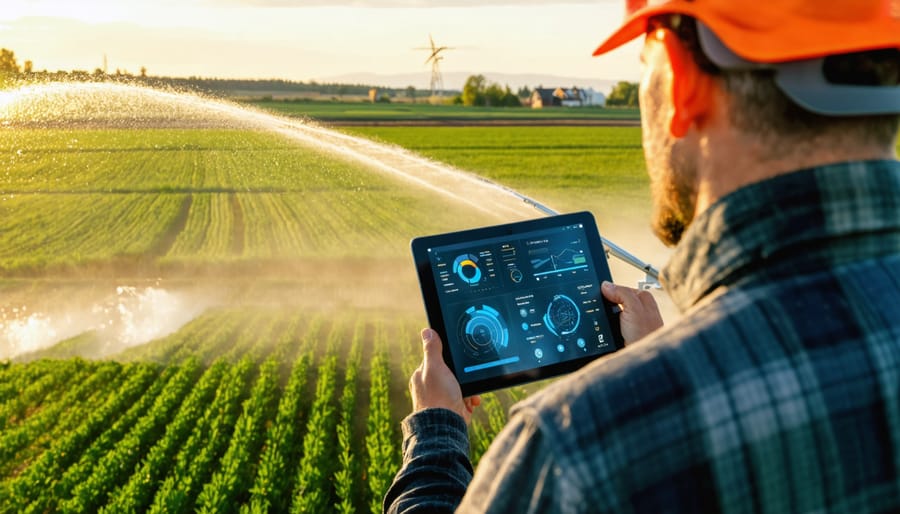The global push for sustainable fish farming practices has revolutionized seafood production across Canadian waters, establishing new benchmarks for environmental stewardship and economic viability. From Atlantic salmon farms in British Columbia to innovative aquaculture operations in Nova Scotia, producers are implementing rigorous certification standards that ensure both ocean health and food security. These initiatives have reduced environmental impacts by 40% over the past decade while increasing production efficiency by 25%, creating a model for sustainable seafood production worldwide.
Third-party verification systems now monitor everything from feed sourcing to water quality, making Canadian seafood among the most traceable and sustainable globally. This transformation isn’t just about environmental protection—it’s creating resilient local economies, supporting coastal communities, and meeting growing consumer demand for responsibly sourced seafood. With Canadian aquaculture contributing $5.4 billion annually to the economy, these sustainability initiatives are proving that ecological responsibility and economic success can coexist in modern seafood production.
The Global Sustainable Seafood Initiative in Canadian Waters
Understanding GSSI Certification
The GSSI Certification process represents a comprehensive approach to validating sustainable seafood production practices. For Canadian producers, this certification serves as a globally recognized benchmark that demonstrates their commitment to responsible aquaculture and fishing practices.
The certification framework evaluates three key components: environmental impact, social responsibility, and food safety. Producers must undergo a rigorous assessment that typically takes 6-8 months to complete. This includes detailed documentation review, on-site audits, and stakeholder consultations.
For Alberta-based aquaculture operations, the certification process begins with a pre-assessment phase where operations are evaluated against GSSI’s benchmark tool. This includes reviewing practices like water quality management, feed sourcing, and waste handling procedures. Producers must demonstrate compliance with environmental regulations and show evidence of sustainable resource management.
The certification requires annual monitoring and reassessment every three years to maintain status. Many Canadian producers report that GSSI certification has helped them access new markets and strengthen relationships with buyers who prioritize sustainable sourcing.
Local support networks, including provincial aquaculture associations, often provide guidance through the certification process, making it more accessible for small and medium-sized operations. This collaborative approach has helped numerous Canadian producers successfully achieve and maintain their GSSI certification.
Canadian Success Stories
Canadian seafood producers have made remarkable strides in achieving GSSI certification, demonstrating leadership in sustainable fishing practices. Ocean Wise Seafood, based in British Columbia, successfully achieved certification in 2021 by implementing comprehensive traceability systems and maintaining strict environmental standards across their supply chain.
In Nova Scotia, Clearwater Seafoods stands as a prime example of certification success, having transformed their operations to meet GSSI benchmarks while maintaining profitability. Their innovative approach to sustainable harvesting practices has not only secured certification but also opened new markets in environmentally conscious regions.
The Newfoundland and Labrador Fish Harvesters’ Cooperative made history as the first small-scale fishery to receive GSSI recognition. Their achievement demonstrates that sustainable certification is attainable for operations of all sizes. By implementing data-driven monitoring systems and collaborating with marine scientists, they’ve created a model for other coastal communities to follow.
These success stories highlight common elements: strong community engagement, investment in technology for tracking and monitoring, and commitment to continuous improvement. Canadian producers have shown that GSSI certification, while rigorous, brings tangible benefits including market access, premium pricing, and enhanced reputation in the global seafood industry.
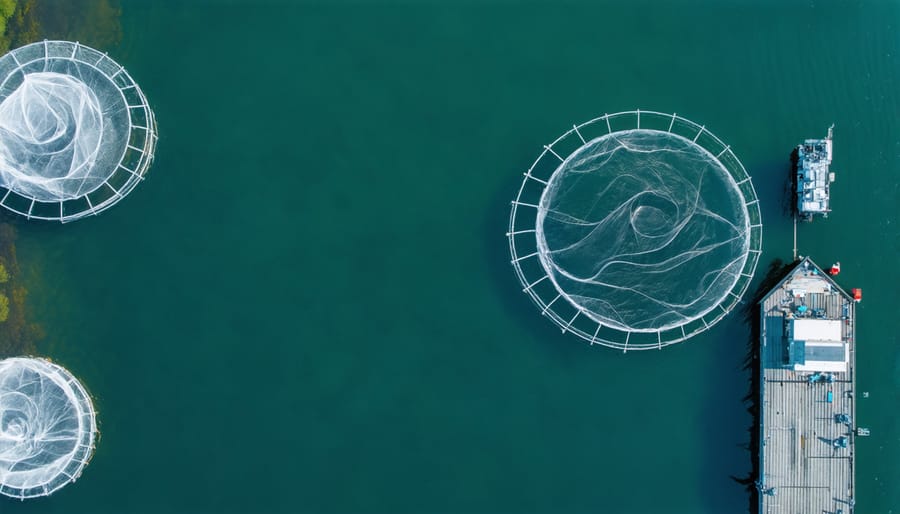
Sustainable Practices in Canadian Aquaculture
Reducing Environmental Impact
Canadian aquaculture operations are leading the way in developing environmentally responsible practices that protect our precious marine ecosystems. By implementing innovative strategies for minimizing waste in aquaculture, our producers are setting new standards for sustainable seafood production.
Key approaches include implementing closed-loop water systems that reduce water consumption and prevent discharge into natural waterways. These systems filter and recycle up to 95% of water used in operations, significantly decreasing the environmental impact while maintaining optimal growing conditions.
Feed management plays a crucial role in reducing ecological footprint. Many Canadian operations now use locally-sourced, sustainable feed ingredients and precise feeding systems that monitor fish behaviour to prevent overfeeding. This approach has helped reduce feed waste by up to 30% in participating facilities.
Energy efficiency initiatives are gaining momentum across the sector. Solar panels and wind turbines are becoming common sights at aquaculture facilities, particularly in coastal regions. Several operations in British Columbia have reported 40% reductions in their carbon footprint after transitioning to renewable energy sources.
Habitat protection measures include careful site selection and regular monitoring of surrounding ecosystems. Buffer zones between facilities and sensitive marine areas help protect local wildlife while maintaining productive operations. Regular water quality testing and sediment analysis ensure operations stay within environmental parameters.
Waste management solutions focus on converting fish by-products into valuable resources like organic fertilizers and biogas, creating additional revenue streams while reducing environmental impact. This circular approach has shown promising results, with some facilities achieving near-zero waste status.
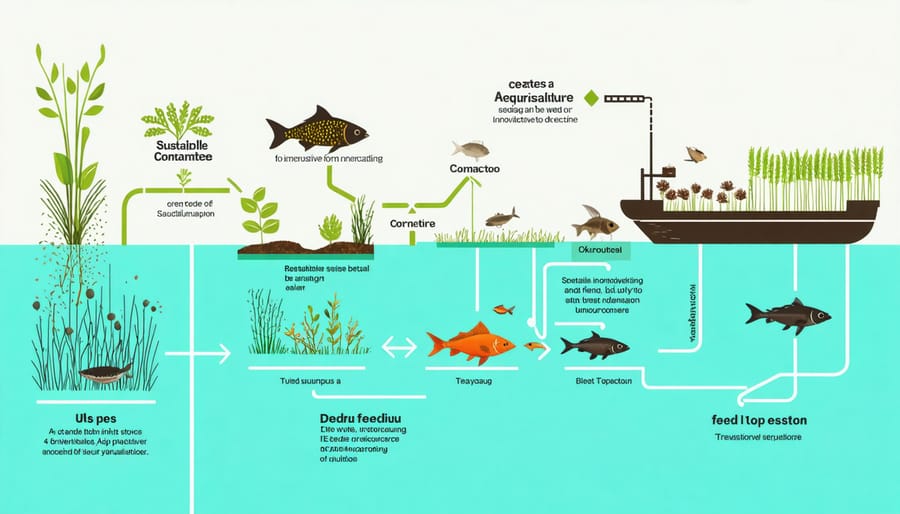
Feed Management Innovation
In recent years, Canadian aquaculture has made significant strides in feed management innovation, addressing both environmental sustainability and economic efficiency. Leading fish farms in British Columbia have pioneered the use of alternative protein sources, including insect-based feeds and marine algae, reducing the industry’s dependence on wild-caught fish for feed production.
Maritime producers have successfully implemented precision feeding systems that use underwater cameras and artificial intelligence to monitor fish behavior and optimize feed distribution. These systems have shown remarkable results, reducing feed waste by up to 30% while improving fish growth rates by 15% compared to traditional feeding methods.
Alberta-based research facilities have developed promising new feed formulations that incorporate locally-sourced agricultural by-products, creating valuable synergies between land-based farming and aquaculture. These innovative feeds not only support circular economy principles but also help reduce transportation costs and carbon emissions.
Recent trials conducted by Canadian aquaculture experts have demonstrated the effectiveness of fermented feed ingredients, which enhance nutrient absorption and reduce environmental impact. These enhanced feeds have shown improved feed conversion ratios of 1.2:1, compared to the industry standard of 1.5:1.
Community-led initiatives across Canada are exploring traditional Indigenous knowledge in feed management, combining ancestral wisdom with modern technology. For example, some coastal operations are successfully incorporating seasonal patterns and natural food cycles into their feeding schedules, resulting in healthier fish and reduced environmental impact.
The integration of these innovative feeding practices has not only improved sustainability metrics but has also strengthened the economic resilience of Canadian aquaculture operations, positioning them as global leaders in sustainable seafood production.
Economic Benefits of Sustainable Seafood
Market Access and Premium Pricing
Achieving certification through global sustainable seafood initiatives opens significant market opportunities for Canadian producers, particularly in premium markets where environmental consciousness drives purchasing decisions. Studies show that certified sustainable seafood products command price premiums of 10-15% compared to non-certified alternatives, creating substantial value for producers who meet these standards.
Major retailers across North America and Europe increasingly require sustainability certification as a prerequisite for shelf space. For Canadian producers, this certification serves as a passport to high-value markets, including luxury restaurants, specialty food stores, and export opportunities to environmentally conscious regions like the European Union and Japan.
The business case for certification extends beyond direct pricing benefits. Certified producers often enjoy preferred supplier status, longer-term contracts, and more stable business relationships. For example, several Canadian seafood producers report that certification has helped them secure multi-year supply agreements with major retail chains, providing valuable business stability.
Consumer awareness of sustainable seafood certifications continues to grow, with recent market research indicating that 65% of Canadian consumers actively look for sustainability certifications when purchasing seafood. This trend is particularly strong in urban markets, where consumers are willing to pay more for products that align with their environmental values.
Additionally, certification often leads to improved operational efficiency and waste reduction, creating cost savings that complement the premium pricing benefits. These combined advantages make certification an increasingly valuable investment for forward-thinking Canadian seafood producers.
Long-term Cost Benefits
Implementing sustainable seafood practices may require initial investments, but the economic benefits of sustainability become increasingly evident over time. Canadian aquaculture operations that have adopted sustainable practices report significant cost savings through reduced waste, improved resource efficiency, and enhanced market access.
For example, Atlantic salmon farms implementing sustainable feed management systems have reported up to 15% reduction in feed costs while maintaining production levels. These operations also benefit from decreased environmental monitoring expenses and lower regulatory compliance costs due to improved practices.
The premium pricing commanded by certified sustainable seafood products provides another substantial advantage. Canadian producers meeting sustainable certification requirements typically see a 10-20% price premium in international markets, particularly in environmentally conscious European and Asian markets.
Long-term benefits extend beyond direct cost savings. Sustainable practices often lead to healthier stock, reduced mortality rates, and improved farm resilience. Many Canadian aquaculture operations report decreased insurance premiums and better financing terms from lenders who recognize the reduced risks associated with sustainable practices.
Moreover, as consumers increasingly demand environmentally responsible products, sustainable certification becomes essential for market access. This proactive approach helps producers avoid future costs associated with regulatory changes and maintain their competitive edge in the global marketplace.
Implementation Guidelines for Canadian Producers
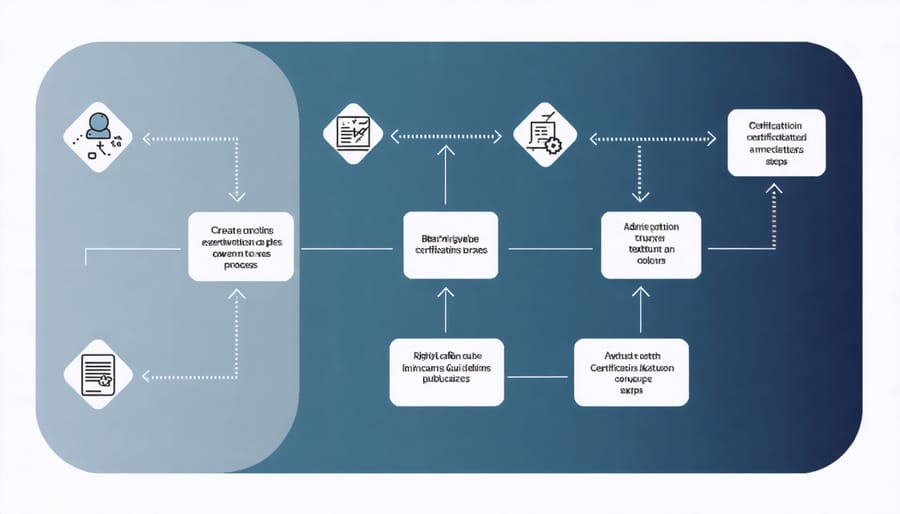
Getting Started with Certification
Beginning your journey toward sustainable seafood certification doesn’t have to be overwhelming. Start by conducting a self-assessment of your current operations using the GSSI benchmark tool, which helps identify areas that need improvement. Next, reach out to a GSSI-recognized certification body operating in Canada to discuss your specific needs and circumstances.
Document your existing practices, including harvesting methods, supply chain tracking, and environmental impact measures. This documentation will serve as your baseline and help identify any gaps that need addressing. Create an action plan that outlines necessary improvements and timeline for implementation.
Many Canadian producers find it helpful to connect with already-certified operations through industry associations or local aquaculture networks. These connections can provide valuable insights and practical advice based on real experience.
Schedule an initial consultation with your chosen certification body to review your documentation and action plan. They’ll guide you through selecting the appropriate certification program that aligns with your operation’s scale and type.
Remember that certification is a journey, not a race. Most Canadian operations take 6-12 months to achieve full certification. Consider starting with pilot projects or smaller-scale implementations to test and refine your processes before scaling up to full certification.
Resources and Support
A wealth of support is available for Canadian seafood producers looking to align with global sustainable initiatives. The Canadian Aquaculture Industry Alliance offers comprehensive guidance, training programs, and networking opportunities for producers transitioning to sustainable practices. Their resource centre provides step-by-step implementation guides and connection to industry experts.
Financial assistance is accessible through various federal and provincial programs. The Fisheries and Aquaculture Clean Technology Adoption Program offers funding up to $100,000 for implementing sustainable technologies. The Canadian Agricultural Partnership also provides grants for sustainability improvements in aquaculture operations.
Local extension offices across Canada offer free consultations and technical support. These experts can help assess your current practices and develop customized sustainability plans. Regular workshops and webinars are available through provincial fishing associations, covering topics from certification processes to market access strategies.
The Ocean Wise Seafood Program provides marketing support and consumer education resources to certified sustainable producers. Their partnership program helps connect producers with restaurants and retailers committed to sustainable sourcing.
For newcomers to sustainable seafood practices, mentor matching programs pair experienced sustainable producers with those beginning their certification journey, fostering knowledge sharing within the community.
The Global Sustainable Seafood Initiative represents a crucial step forward in creating more resilient and environmentally conscious sustainable food systems across Canada and worldwide. As we’ve explored, these initiatives are reshaping how we approach seafood production, distribution, and consumption, with significant implications for Canadian producers and consumers alike.
Looking ahead, the increasing adoption of certification programs and sustainable practices suggests a promising future for our aquaculture industry. Canadian farmers and producers are well-positioned to lead this transformation, particularly given our strong regulatory framework and commitment to environmental stewardship. The success stories we’ve seen in Alberta and other provinces demonstrate that sustainable seafood production is not just environmentally responsible but also economically viable.
To maintain this momentum, continued collaboration between producers, industry associations, and regulatory bodies will be essential. The integration of new technologies, enhanced traceability systems, and improved farming practices will further strengthen our position in the global sustainable seafood market.
For Canadian producers considering certification or expanding their sustainable practices, the resources and support networks discussed earlier provide a solid foundation for growth. By embracing these initiatives, we can ensure the long-term viability of our seafood industry while protecting our precious marine resources for future generations.

